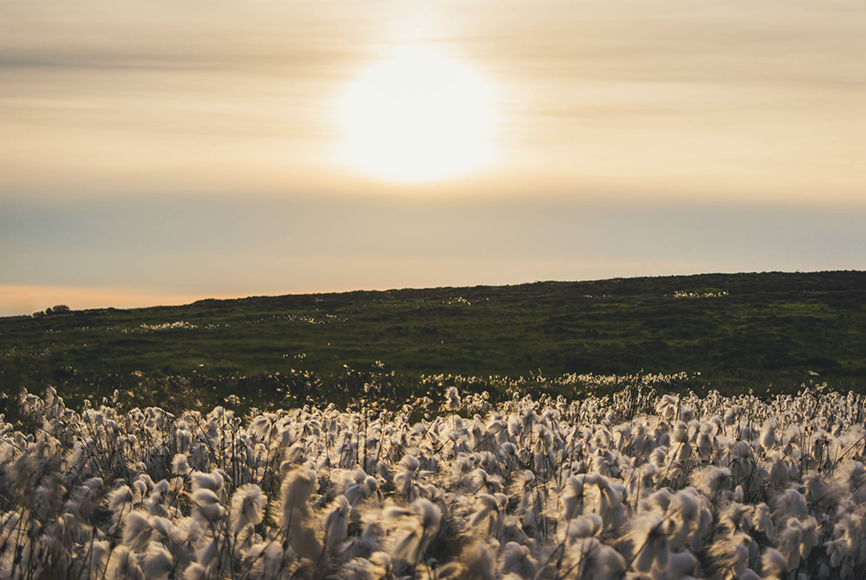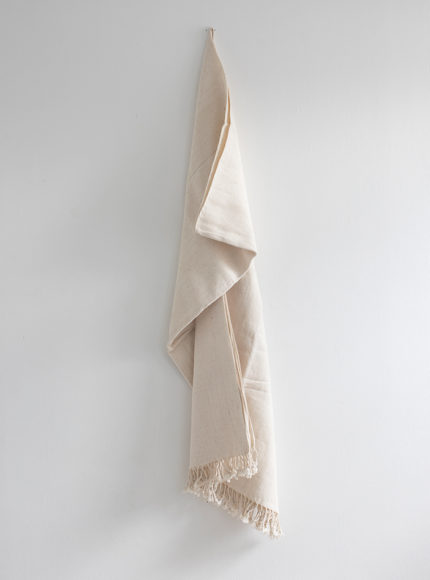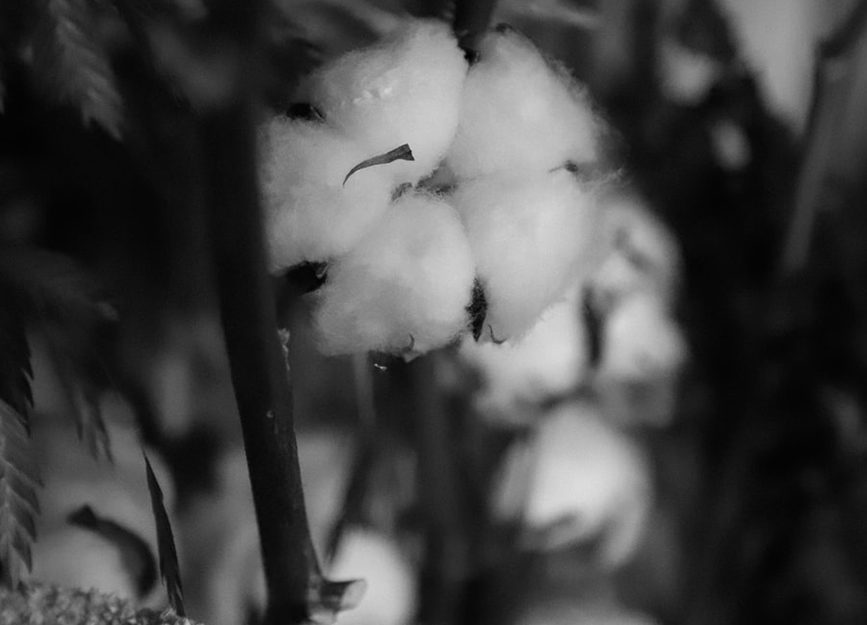

Organic cotton is grown without pesticides.
Conventional cotton is grown with a huge amount of water.
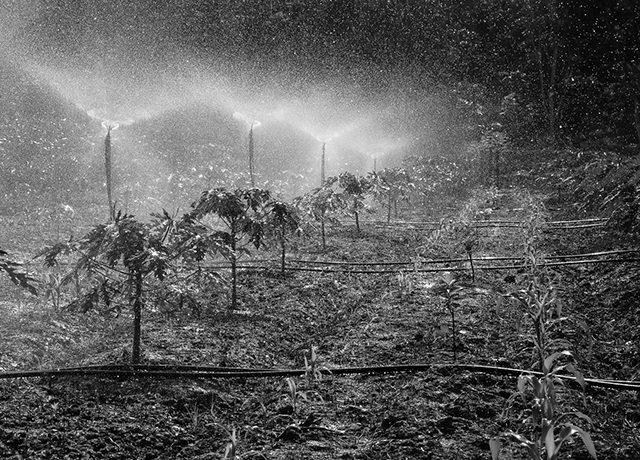

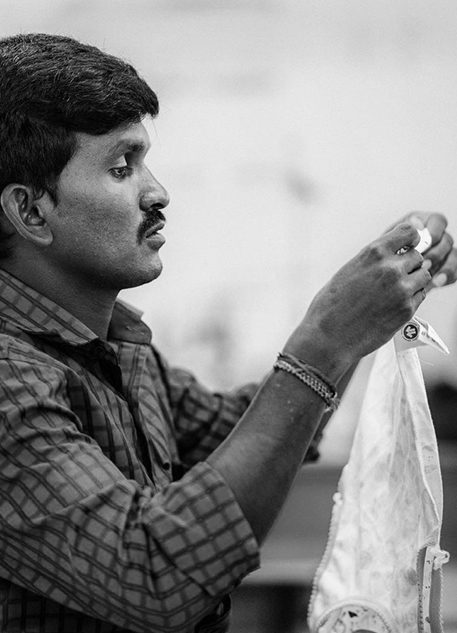

Look for the @globalorganictextilestandard label
Environment
Hidden Toxic Secrets: The Importance of Choosing Organic Cotton
The fourth in our Hidden Toxic Secrets series, in this editorial we explore the devastating effects that conventional cotton production has on the health of our planet and the people who work to grow and produce it. Grown with excessive amounts of water and pesticides, the world’s favourite natural fabric comes with a pretty hefty footprint. For this reason, it is so important to choose organic cotton whenever possible. Keep on reading to learn more about exactly why!
Cotton production uses about 1.5 billion pounds worth of pesticides every year, which accounts for 16% of all insecticides used, which is more than any other crop.
Source: Soil Association
Water Usage
The conventional cotton industry requires a ridiculous amount of water. To make one cotton t-shirt, factories have to use 2,700 litres of water, which is absolutely insane [source: Swedish Linens]. In 2015, by growing organic cotton, farmers saved around 218 billion litres of water, which is equivalent to 87,201 Olympic size pools [source: About Organic Cotton].
Sadly, this beautiful planet of ours does not have unlimited amounts of clean water. Over one billion people do not have access to clean water, while the cotton industry uses 10,000 liters of water just to process one kilo of cotton. By just 2025, two-thirds of the world’s population may face water shortages, which is why we must crackdown on water usage in all industries.
Intensive Agriculture = Mass Pollution
Chemical sprays and conventional pesticides are incredibly detrimental to our planet and our bodies. When pesticides are used within farming, they greatly degrade our soil, end up in our waterways, threatening the health of farmworkers and nearby populations, and eventually end up on our plates and in our clothing. For instance, when these chemicals end up in rivers, ponds, or lakes due to runoff, that body of water can become contaminated.
There have been studies that have shown fish and other animals can get incredibly sick and even die from prolonged exposure to these chemicals [source: World Wild Life]. And of course, many people drink and bathe in water that is contaminated, exposing communities and populations to health risks [source].
A 2011 study found that globally, cotton consumption causes around 220 million tons of CO2e and uses around 4% of the world’s nitrogen fertilizers. Cotton production uses about 1.5 billion pounds worth of pesticides every year, which accounts for 16% of all insecticides used, which is more than any other crop [source: Soil Association].
“Put simply, organic farming is a holistic method which aims to work with, rather than against, nature and natural processes to build health and fertility across the ecology of the farm.”
Source: Soil Association
Why Choose Organic Cotton?
“Put simply, organic farming is a holistic method which aims to work with, rather than against, nature and natural processes to build health and fertility across the ecology of the farm.” [source: Soil Association]. Studies have shown that farming cotton organically greatly reduces harmful emissions, excess energy, and water. In 2014, organic cotton farming saved 96.2 million kg of Co2, which is the equivalent of driving a car around the world 14,114 times! Additionally, 300.6 million kilowatts of energy were saved, which is the same as a 60w bulb going for 57,122 years. And as I already mentioned billions of litres of freshwater are saved every year and our waterways are fed fewer chemicals.
Another incredibly important factor is the wellbeing of farmers and workers, who have a more stable income from farming organically because “organic farming requires greater crop diversity, including food crops in the rotation. Not only are input costs cut, but farmers save on medical bills and food purchases.” [source: Soil Association]. Without the use of pesticides farmers, their families, and their local communities aren’t exposed to prolonged exposure to these toxins.
Look For The GOTS Certification
We are proud to carry many brands which carry the GOTS Certification. This is a worldwide textile processing standard and ensures the organic status of textiles throughout the entire supply chain – from harvesting of raw materials to responsible manufacture and labelling. The GOTS standard also sets criteria regarding working and social conditions.
In our organic cotton collection you’ll find our favourite labels making organic & sustainable fashion, intimates, activewear and homeware.
Riley Studio
This brand creates chic and timeless designs for every woman to wear. Made with GOTS certified organic cotton, Riley’s pieces are designed entirely by women and made locally in the UK. By producing locally in small batches, they are able to minimize the impact of their supply chain and ensure there is minimal waste.
Baina Towels
This beautiful towel line makes every bathroom more exciting. Made in Portugal, Baina works with GOTS certified organic cotton and produces with one of Europe’s most established mills to produce their towels, so that they can last a lifetime. The line was created to celebrate the daily bathing ritual, making those simple moments more exciting.
General Sleep
With most of us working from home, it is so wonderful to find sleepwear that doubles as a chic WFH outfit. General Sleep creates sustainable and ethical pyjamas that are so chic, you could wear them out. Made from sustainably sourced cotton-linen and woven on hand looms in the South of India with an initiative that supports the local community by paying their weavers a living wage in a solar-powered factory.
Harvest & Mill
Designed and produced in the US, Harvest & Mill was born out of the desire to create locally sewn and USA grown organic clothing. They support local and organic farmers, who are helping to keep American heritage mills alive. The brand is helping to rebuild supply chains that are based on ecological and ethical principles. Their naturally-dyed clothing comes from farmers and dye artists in Indiana and California!
A Perfect Nomad
Perfect Nomad is an ethereal line of resort wear that is as luxurious as it is ethical. They use only beautiful natural fibres, such as organic peace silks that are entirely cruelty free and GOTS certified organic cottons. Their pieces are long lasting and unaffected by trends. They work closely with artisans who hand make every item using traditional techniques like hand dying and block printing.




















